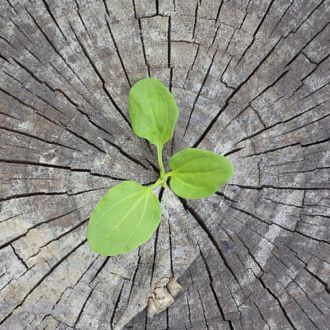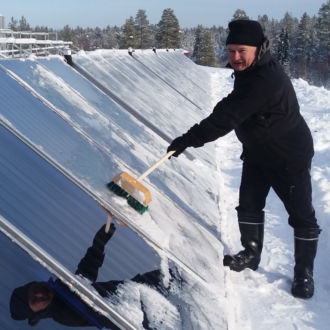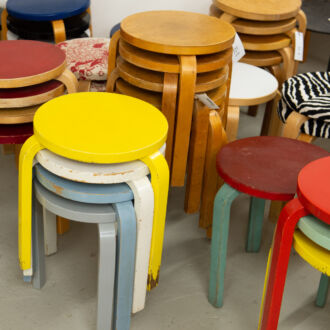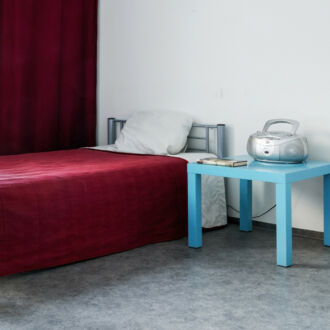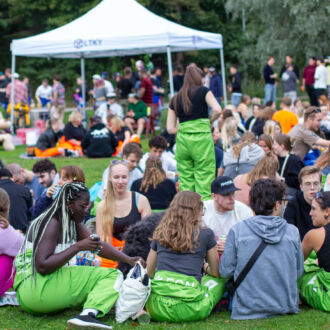Paptic, Zenrobotics and Fortum Recycling&Waste are three Finnish companies involved in processing waste to make it much less wasteful.
Read on to find out what they’re doing, and see the box at the end of this article for more real-life applications.
Flexibility in packaging
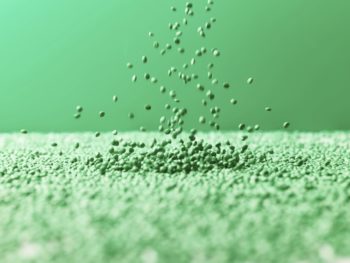
Fortum Circo is a plastic recyclate produced from post-consumer plastic waste.Photo: Fortum
Fortum Recycling&Waste is a Finnish trailblazer for sustainable circular economy innovations. The company’s granulated post-consumer recyclate product, Fortum Circo, has been developed to completely or partly replace “virgin” plastic for a wide variety of purposes.
Fortum Circo’s three different granulate grades can be adapted and customised to different uses, for example robust and durable high-density polyethylene (HDPE) pipes and bottles, petrochemical containers and cleaning-media bottles. Low-density polyethylene (LDPE) product applications include flexible packaging, film and plastic bags. Polypropylene suits various applications, from pots and brushes to kitchenware and household items.
Biobased alternative
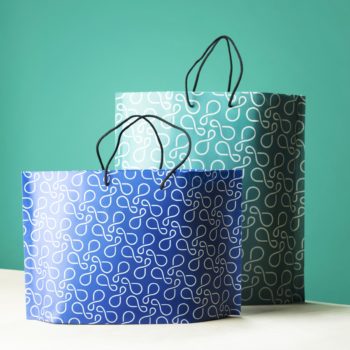
Paptic is replacing plastic in packaging.Photo: Paptic
With a whole string of sustainable industry awards to its credit, Paptic makes credible claims to be “the best alternative for plastics in packaging.” It is a biobased, recyclable and renewable next-generation packaging material made with wood fibre sourced from sustainably managed forests and produced by the Finnish startup of the same name.
Products made of Paptic can and should be used more than once, and even more than ten times. The material is strong, easily foldable, resistant to ripping and can be made using existing paper converting lines, saving the cost of new infrastructure or machinery. Paptic can be used for carrier bags, envelopes and other one-time use applications; it has print quality on a par with regular paper, as well as the durability of non-wovens and the versatility of textiles.
Redefining recycling
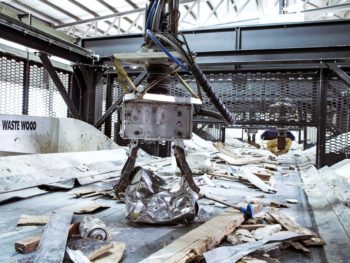
Zenrobotics’ robotic waste-sorting system increases recycling efficiency and the purity of recycled materials.Photo: Zenrobotics/Studio Kylänpää
Harnessing the power of artificial intelligence to improve the quality of waste sorting, Zenrobotics’ robots are billed as being able to sort waste just as well as humans – only faster and more safely. Building on the scientific work of the neurorobotics research group at Finland’s Aalto University, the company has revolutionised recycling processes that relied on inefficient manual labour.
Zenrobotics’ robots have been delivered to waste management companies worldwide, from Australia to Japan and from Switzerland to the US. Designed to lower costs, reduce manual labour, increase recycling efficiency and increase the purity of recycled materials, the solutions are claimed to redefine ‘Next Generation Recycling’.
Recycling, reusing and replacing plastic
|
By Tim Bird, ThisisFINLAND Magazine 2020
